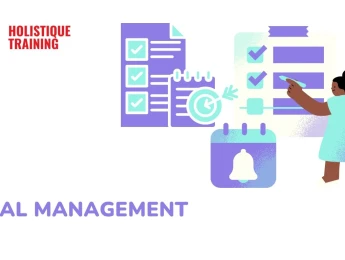In a rapidly changing world, educators and learners alike need creative problem-solving skills to address complex challenges. Design Thinking offers a human-centered, iterative approach that fosters empathy, innovation, and practical solutions.
This course empowers educators and education leaders to use Design Thinking in curriculum design, instructional practice, and school improvement initiatives. Participants will learn how to engage learners in solving authentic problems while building critical thinking, collaboration, and creativity.
By the end of this course, participants will be able to:
- Understand the principles and stages of Design Thinking in an educational context.
- Apply Design Thinking to create learner-centered solutions to real-world problems.
- Facilitate students’ engagement in problem-based, project-based, and experiential learning.
- Use empathy to understand learners’ needs and challenges.
- Foster a culture of innovation and experimentation in classrooms and schools.
- Integrate Design Thinking into curricula, lesson plans, and institutional strategies.
This course is ideal for:
- Teachers and lecturers at all levels.
- School principals, coordinators, and academic leaders.
- Instructional designers and curriculum developers.
- Education consultants and innovation coaches.
- Trainers and facilitators in educational and youth programs.
- Anyone looking to embed creativity and problem-solving into education.
This highly interactive course combines expert-led discussions, group collaboration, case study analysis, and hands-on workshops. Participants will experience the Design Thinking process themselves and develop actionable solutions for challenges in their own educational contexts.
Day 5 of each course is reserved for a Q&A session, which may occur off-site. For 10-day courses, this also applies to day 10
Section 1: Why Design Thinking?
- What is Design Thinking and why does it matter in education?
- How it helps solve problems creatively and practically.
- Success stories of Design Thinking in schools and universities.
- Activity: Identify real challenges from your own teaching or school setting.
Section 2: Empathize & Define
- Empathize: Understand the feelings, needs, and motivations of students and stakeholders.
- Techniques: interviews, observation, empathy mapping.
- Define: Frame a clear, actionable problem statement.
- Workshop: Create an empathy map and write a problem statement.
Section 3: Ideate & Prototype
- Ideate: Generate as many creative solutions as possible.
- Techniques: brainstorming, mind mapping, SCAMPER, “crazy 8s”.
- Prototype: Build quick, simple models of your ideas.
- Examples of low- and high-fidelity prototypes in education.
- Workshop: Ideate and build a prototype to address an educational problem.
Section 4: Test & Improve
- Test: Try out your solution, get feedback, and make improvements.
- How to design meaningful feedback activities.
- Embracing failure as a step toward better solutions.
- Workshop: Test your prototype and plan improvements.
Section 5: Embedding Design Thinking in Education
- How to weave Design Thinking into daily lessons and curriculum.
- Leading classroom and school-wide Design Thinking projects.
- Building a mindset of innovation among teachers and students.
- Final activity: Present a complete Design Thinking project plan for your own context.
Upon successful completion of this training course, delegates will be awarded a Holistique Training Certificate of Completion. For those who attend and complete the online training course, a Holistique Training e-Certificate will be provided.
Holistique Training Certificates are accredited by the British Accreditation Council (BAC) and The CPD Certification Service (CPD), and are certified under ISO 9001, ISO 21001, and ISO 29993 standards.
CPD credits for this course are granted by our Certificates and will be reflected on the Holistique Training Certificate of Completion. In accordance with the standards of The CPD Certification Service, one CPD credit is awarded per hour of course attendance. A maximum of 50 CPD credits can be claimed for any single course we currently offer.
- Course Code IND08-114
- Course Format Classroom, Online,
- Duration 5 days











